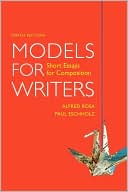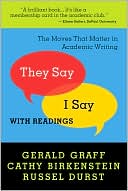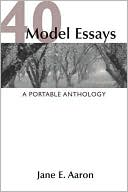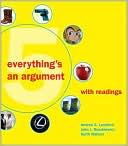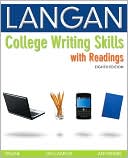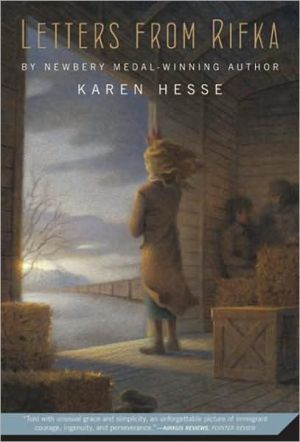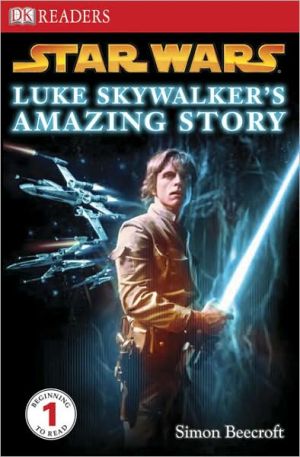Models for Writers: Short Essays for Composition
Search in google:
It’s a simple, best-selling combination that has worked for over 20 years — short, accessible essays and helpful, thorough writing instruction. Models for Writers continues to offer thought-provoking selections organized to demonstrate not only the rhetorical patterns that students will use in their own essays but also the elements and language that will make those essays effective.
Preface Introduction for StudentsPart One: On Reading and Writing Well1 The Writing Process Prewriting Understand Your ArgumentChoose a Subject Area, and Focus on a Topic Get Ideas and Collect InformationEstablish Your Thesis Know Your Audience Determine Your Method of Development Map Your Organization Writing the First Draft Create a Title Focus on Beginnings and Endings Revising EditingRun-ons: Fused Sentences and Comma Splices Sentence Fragments Subject-Verb Agreement Pronoun-Antecedent Agreement Verb Tense Shifts Misplaced and Dangling Modifiers Faulty Parallelism Weak Nouns and Verbs Academic Diction and Tone ESL Concerns (Articles and Nouns)Proofreading Writing an Expository Essay: A Student Essay in Progress Jeffrey Olesky, Golf: A Character Builder (student essay)2 From Reading to Writing Getting the Most Out of Your ReadingStep 1: Prepare Yourself to Read the Selection Step 2: The Selection Step 3: RereadStep 4: Annotate the Text with Marginal Notes Step 5: Analyze the Text with Questions An Example: Annotating Isaac Asimov’s “Intelligence” Rachel Carson, Fable for TomorrowUsing Your Reading in the Writing Process Reading as a Writer Writing from Reading: Three Sample Student Essays A Narrative Essay: Lisa V. Driver, The Strong Arm of a Sixth-Grade Teacher (student essay) A Response Essay: Zoe Ockenga, The Excuse “Not To” (student essay) An Analytical Essay: Susan Francis, The Disgrace of Man (student essay)Part Two: The Elements of the Essay3 Thesis Helen Keller, The Most Important DayJames Lincoln Collier, Anxiety: Challenge by Another Name* Buzz Bissinger, Faster, Higher, Stronger, No Longer4 Unity Sandra Cisneros, My Name* Malcolm Gladwell, No MercyGloria Naylor, The Meanings of a Word5 Organization Cherokee Paul McDonald, A View from the Bridge*Bharati Mukherjee, Two Ways to Belong in America Martin Luther King Jr, The Ways of Meeting Oppression6 Beginnings and Endings Michael T. Kaufman, Of My Friend Hector and My Achilles HeelSteve Brody, How I Got SmartRuth Russell, The Wounds that Can’t Be Stitched UpCarl T. Rowan, Unforgettable Miss Bessie7 Paragraphs William Zinsser, Simplicity*Abe Whaley, Once Unique, Soon a Place Like Any OtherMike Rose, “I Just Wanna Be Average”8 Transitions David Raymond, On Being 17, Bright, and Unable to ReadRussell Baker, Becoming a Writer*Nancy Gibbs, The Magic of the Family Meal 9 Effective Sentences *Alice Walker, ChildhoodLangston Hughes, Salvation*Meghan Daum, My House: Plain and FantasyMartin Gansberg, 38 Who Saw Murder Didn’t Call Police*10 Writing with Sources *Sharon Begley, Praise the Humble Dung Beetle Natalie Goldberg, Be Specific *Jake Jamieson, The English-Only Movement: Can America Proscribe Language with a Clear Conscience?Part Three: The Language of the Essay11 Diction and Tone Dick Gregory, Shame David Sedaris, Me Talk Pretty One DaySarah Vowell, Pop-A-ShotRichard Lederer, The Case for Short Words12 Figurative Language Robert Ramirez, The BarrioGary Soto, The Jacket*Diane Ackerman, Watching a Night Launch of the Space ShuttlePart Four: Types of Essays13 Illustration Barbara Huttmann, A Crime of Compassion* Gregory Pence, Let’s Think Outside the Box of Bad Cliches*Linton Weeks, Burdens of the Modern Beast*Steven Pinker, In Defense of Dangerous Ideas 14 Narration Henry Louis Gates Jr, What’s in a Name?George Orwell, A Hanging Maya Angelou, Momma, the Dentist, and MeKate Chopin, The Story of an Hour15 Description Gilbert Highet, The Subway*Oscar Hijuelos, Memories of New York City SnowEudora Welty, The Corner Store Thomas L. Friedman, My Favorite Teacher 16 Process Analysis *Paul Merrill, The Principles of Poor Writing*Tiffany Sharples, Young Love*Alexander Petrunkevitch, The Spider and the Wasp17 Definition Lawrence M. Friedman, What Is Crime?Ellen Goodman, The Company Man*Anton Chekhov, A Nincompoop18 Division and Classification *Paul Boutin, You Are What You Search Judith Viorst, Friends, Good Friends — and Such Good FriendsWilliam Lutz, Doubts about Doublespeak 19 Comparison and Contrast Mark Twain, Two Ways of Seeing a River*Andrew Braaksma, Some Lessons from the Assembly LineBruce Catton, Grant and Lee: A Study in Contrasts*Audrey Schulman, Fahrenheit 59: What a Child’s Fever Might Tell Us about Climate Change20 Cause and Effect Stephen King, Why We Crave Horror MoviesMyriam Marquez, Why and When We Speak Spanish in Public*Sanjay Gupta, Stuck on the Couch*Henry Louis Gates Jr, Forty Acres and a Gap in Wealth21 Argument Thomas Jefferson, The Declaration of IndependenceMartin Luther King Jr, I Have a Dream*Ronald M. Green, Building Baby from the Genes Up Mary Sherry, In Praise of the F WordThe Obesity Epidemic: Who’s to Blame?Greg Critser, Don’t Eat the FlanAlison Motluk, Supersize Me: It’s Time to Stop Blaming Fat People for Their SizeShame: Is It an Effective Punishment?June Tangney, Condemn the Crime, Not the PersonDan M. Kahan, Shame Is Worth a Try*Organ Transplants: How Can We Solve the Shortage?*Virginia Postrel, Need Transplant Donors? Pay Them.*Alexander Tabarrok, A Moral Solution to the Organ Shortage*Man-Made Garbage: How Should We Control What We Waste?*Heather Rogers, Hiding in Plain SightLars Eighner, On Dumpster DivingAppendix: Writing a Research PaperUsing Print and Online Sources Developing a Working Bibliography Taking Notes Documenting SourcesGlossary of Useful Terms Index * new to this edition
